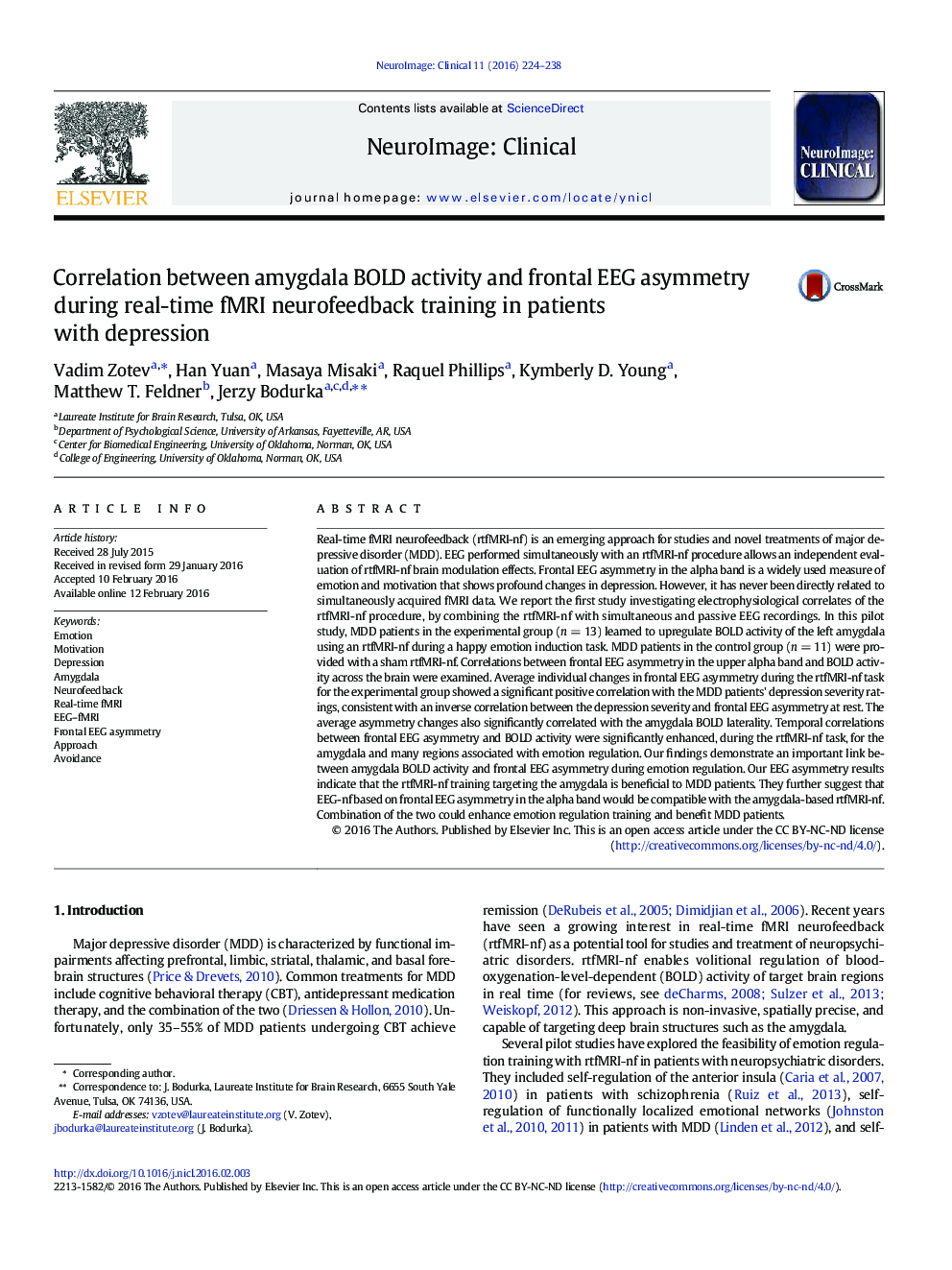| کد مقاله | کد نشریه | سال انتشار | مقاله انگلیسی | نسخه تمام متن |
|---|---|---|---|---|
| 3074914 | 1580956 | 2016 | 15 صفحه PDF | دانلود رایگان |

• Novel examination of real-time fMRI neurofeedback using simultaneous passive EEG
• EEG correlates of rtfMRI-nf training of the amygdala in MDD patients were examined.
• Changes in frontal EEG asymmetry during rtfMRI-nf task correlated with MDD severity.
• Frontal EEG asymmetry showed temporal correlations with amygdala BOLD activity.
• Simultaneous rtfMRI-EEG-nf can enhance emotion regulation training in MDD patients.
Real-time fMRI neurofeedback (rtfMRI-nf) is an emerging approach for studies and novel treatments of major depressive disorder (MDD). EEG performed simultaneously with an rtfMRI-nf procedure allows an independent evaluation of rtfMRI-nf brain modulation effects. Frontal EEG asymmetry in the alpha band is a widely used measure of emotion and motivation that shows profound changes in depression. However, it has never been directly related to simultaneously acquired fMRI data. We report the first study investigating electrophysiological correlates of the rtfMRI-nf procedure, by combining the rtfMRI-nf with simultaneous and passive EEG recordings. In this pilot study, MDD patients in the experimental group (n = 13) learned to upregulate BOLD activity of the left amygdala using an rtfMRI-nf during a happy emotion induction task. MDD patients in the control group (n = 11) were provided with a sham rtfMRI-nf. Correlations between frontal EEG asymmetry in the upper alpha band and BOLD activity across the brain were examined. Average individual changes in frontal EEG asymmetry during the rtfMRI-nf task for the experimental group showed a significant positive correlation with the MDD patients' depression severity ratings, consistent with an inverse correlation between the depression severity and frontal EEG asymmetry at rest. The average asymmetry changes also significantly correlated with the amygdala BOLD laterality. Temporal correlations between frontal EEG asymmetry and BOLD activity were significantly enhanced, during the rtfMRI-nf task, for the amygdala and many regions associated with emotion regulation. Our findings demonstrate an important link between amygdala BOLD activity and frontal EEG asymmetry during emotion regulation. Our EEG asymmetry results indicate that the rtfMRI-nf training targeting the amygdala is beneficial to MDD patients. They further suggest that EEG-nf based on frontal EEG asymmetry in the alpha band would be compatible with the amygdala-based rtfMRI-nf. Combination of the two could enhance emotion regulation training and benefit MDD patients.
Journal: NeuroImage: Clinical - Volume 11, 2016, Pages 224–238